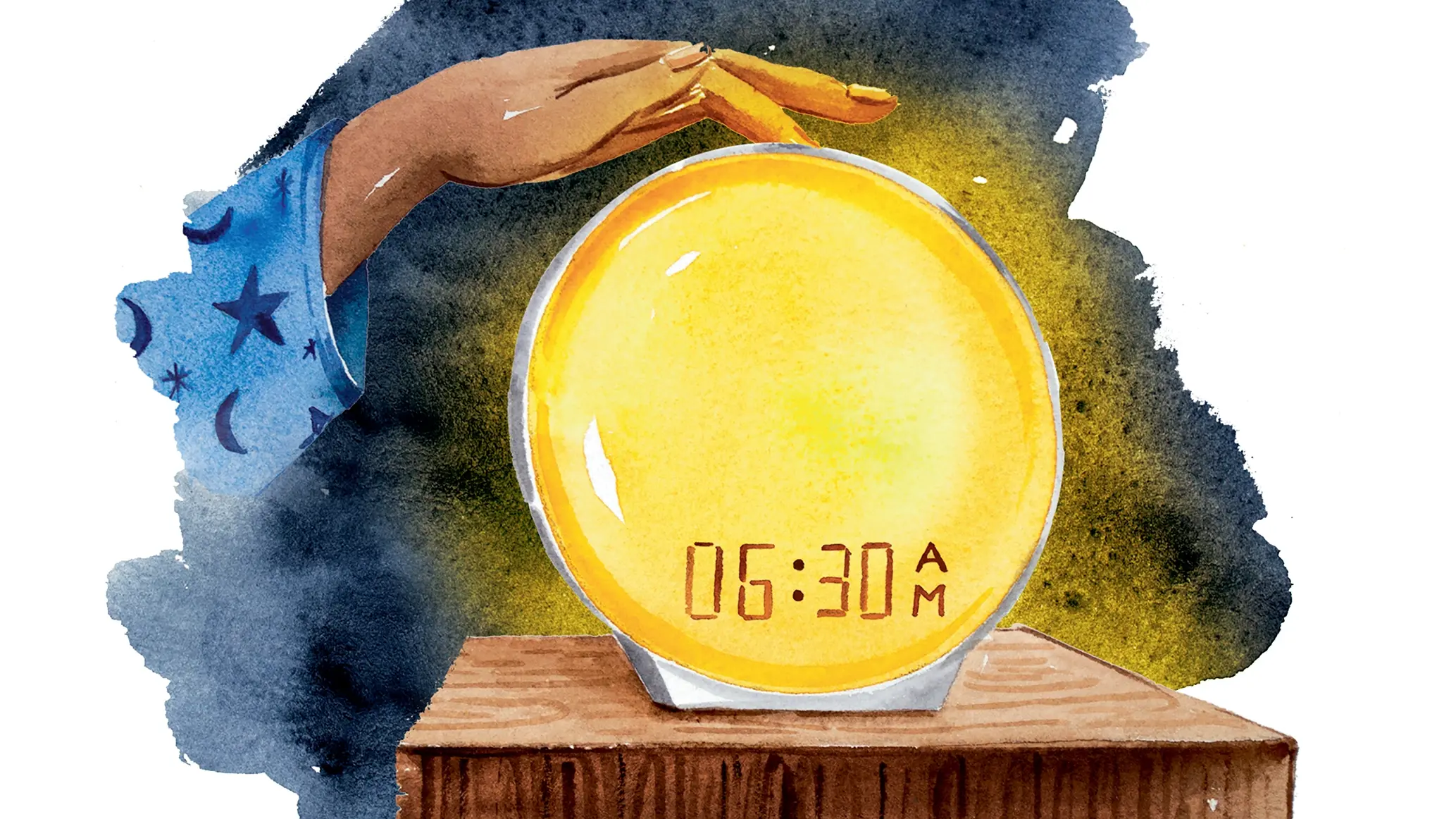1. Embrace nature
Spending time in nature can help boost our mood and reduce feelings of stress. Exposure to morning natural light can also help regulate your sleep patterns. Get up early, wrap up warm and head into the countryside. Try searching for 'Miles Without Stiles' which are routes in some national parks that do not have stiles, steps or steep gradients or search for 'accessible or wheelchair-friendly trails' near you.
You can also get the mood-boosting benefits of nature from listening to birdsong and smelling flowers. Fragrant winter-flowering shrubs include paperbush, witch hazel and wintersweet, so if you have a garden add them into the mix.
Feeling soil with your hands can give you a serotonin boost - the body's natural feel-good chemical and help reduce anxiety. There's still time to plant bulbs such as daffodils, tulips and hyacinths in window boxes, pots or flower beds for a welcoming cheer in the spring.
Numerous studies have shown being around indoor plants can help you feel relaxed and less stressed. The Royal Horticultural Society recommends easy-to-care-for foliage plants such as a spider plant, Kentia palm, jade plant, Boston fern (great for shady rooms) or peace lily.
2. Stay active
Keeping active can feel harder during the winter months, but it can boost energy levels and reduce stress. Trying something new is a great way to raise your confidence, too.
"Movement supports every individual to stay active," says Paige Murray, an adaptive yoga specialist and athlete. Activities like yoga can support our wellbeing through mindfulness, helping us focus on the present by promoting "improved mind-body connection, moving away from external distractions and giving space to self-led exploration".
Paige, who is living with cerebral palsy, knows what it's like to be unsure about trying movement activities when you have a disability. "I put yoga aside for many years," she says. It's now incredibly important to her.
"Adaptive yoga is designed with a person-centred approach and will be different for each individual," she explains. "Practice simply meets you where you are. You choose your pace, movement, set-up and environment." Paige offers in-person and online adaptive yoga sessions, and also recommends websites: adaptiveyogalive.com and mindbodysolutions.org.
Inclusive dance is another way of staying active and is a great stress-buster. Para Dance offers online sessions for adults and children.
Most importantly, enjoy activity in a way that's right for you, whether that's taking part in adaptive exercise classes, sports or going to an inclusive gym.
3. Connect with others
It's common to feel more isolated in winter. But connection can help your mood.
If you're struggling to reach out, "start small - perhaps sending a message to a trusted friend, joining an online support space or attending a low-pressure virtual event. Social connection doesn't have to mean big gatherings even brief moments of shared understanding can ease loneliness," says therapist Helen Rutherford, founder of Emotional Respite Disability Counselling Service. You can find the counselling services on the Emotional Respite website.
"If you're anxious or have access needs, consider spaces that offer quiet zones or disability-friendly access, or allow you to participate with your camera or mic off until you feel ready," adds Helen. "This can allow you to build confidence at your own pace."
4. Get crafty
Relax with mindful crafting. "Whether it's knitting, painting, beadwork or collage, these activities can soothe anxiety, regulate mood and bring a gentle rhythm to your day," says Helen.
She recommends doing what feels physically and emotionally manageable, from quiet, solitary crafts like journalling or drawing to group-based online workshops or audio-guided activities.
"You can buy adaptive products to reduce physical barriers such as limited grip strength, tremor, vision loss or fatigue, enabling more independent crafting experiences," she adds. Check out online stores such as Ability Superstore and The Active Hands Company.

5. Get some light therapy
When there's less daylight around, it's not surprising that many people find their mood dips. But it can interfere with your everyday life. Seasonal Affective Disorder (SAD) "is a type of depression that you experience during particular seasons or times of year", according to charity Mind. It often happens in winter when there is reduced light and can affect your energy levels, sleep and mood.
"Managing [SAD] symptoms might involve small, manageable steps such as keeping a regular sleep routine, using light therapy or creating cosy indoor environments," advises Helen.
Light therapy involves sitting by a special light that simulates sunlight for 30-60 minutes each morning. Sunrise alarm clocks that light up your room gradually as you wake up can also be effective.
"Reaching out for support, whether through therapy, peer support or online, can help reduce isolation during darker months," adds Helen. If you're finding it difficult to cope, see your GP.
6. Practise self-compassion
If you find the winter months tricky, be kind to yourself. "Self-compassion in winter might mean letting go of pressure to 'be productive' and instead honouring what your body and mind truly need," says Helen.
"That might include staying warm, resting more, seeking connection or saying no to things that drain you. Self-care can also be about practical kindness, using aids or supports without guilt, asking for help when needed and reminding yourself that your pace is valid."
"Dedicate some time to really understand yourself and your needs away from external distractions," suggests Paige. "Make time for movement. Give yourself space to recharge and know what helps you to show up as the best version of yourself."
7. Do the festive season your way
Sometimes, exploring a bustling Christmas market or wandering around a twinkling light trail can create a comforting festive feeling, with everywhere from city centres, gardens and museums hosting activities. Head to the theatre for pantomime season many offer audio description, captioning, BSL interpretation and relaxed performances.
If you find the festive period a difficult time or overwhelming, you're not alone. Find ways to manage this time by doing things that nourish you.
Christmas can remind us that we're entering winter, which some may struggle with. "Accept that winter may require more time, rest and support. Embracing a flexible, compassionate mindset can help reduce stress and ease frustrations," says Helen.
If you're spending Christmas Day on your own, indulge yourself. Enjoy the freedom to eat what you want whether festive food or something completely different - make a playlist, watch your favourite films or message friends and family.
Where to get support
- Samaritans are here 24/7, 365 days a year if you need someone to talk to. Call for free on 116 123.
- The Silver Line is a free telephone service for anyone aged 55 or over, providing friendship, conversation and support 24/7. Call 0800 4 70 80 90. If you need urgent help with your mental health, contact NHS 111 (either on the phone or online) and select the 'mental health' option. For children and young people under 19, Childline counsellors are available to speak to 24/7. 0800 1111, childline.org.uk.
- Mental health charity Mind has a support line: 0300 102 1234 and provides advice.
Illustrations: Enya Todd





